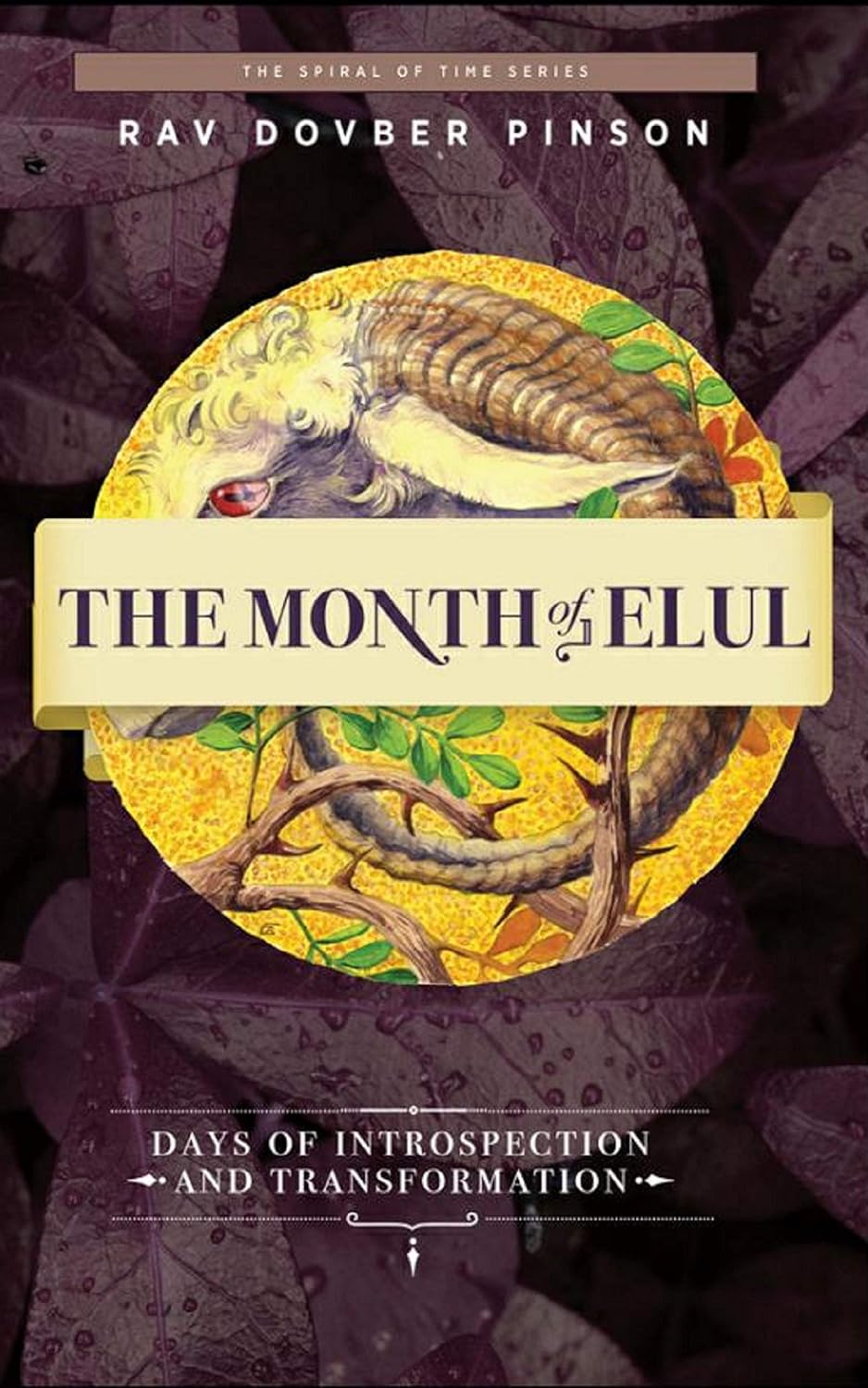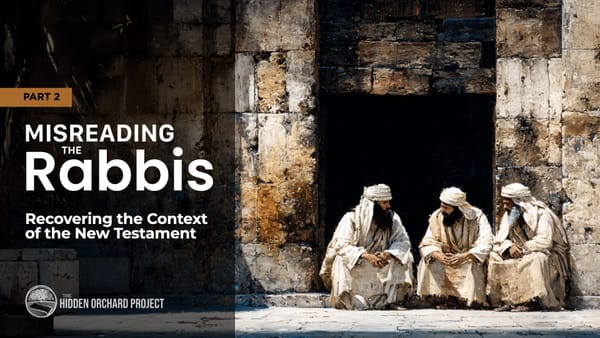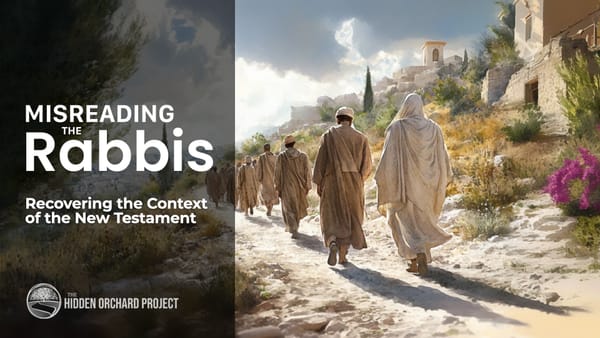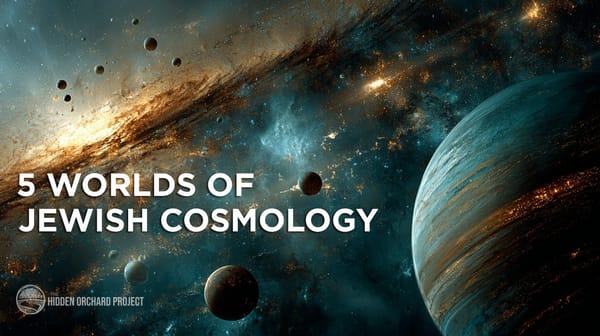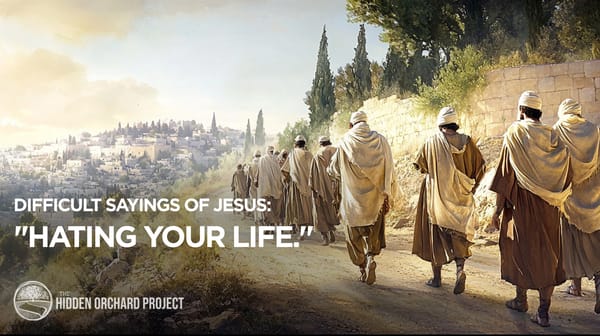Rosh Hashanah: The Sacred Art of Ending Well
In this series, we will explore a few short ideas to make spiritual preparation for Rosh Hashanah. From wisdom on ending the year well, to insights on how we can use our intention to shape the next year. Subscribe today so you don't miss the next part.
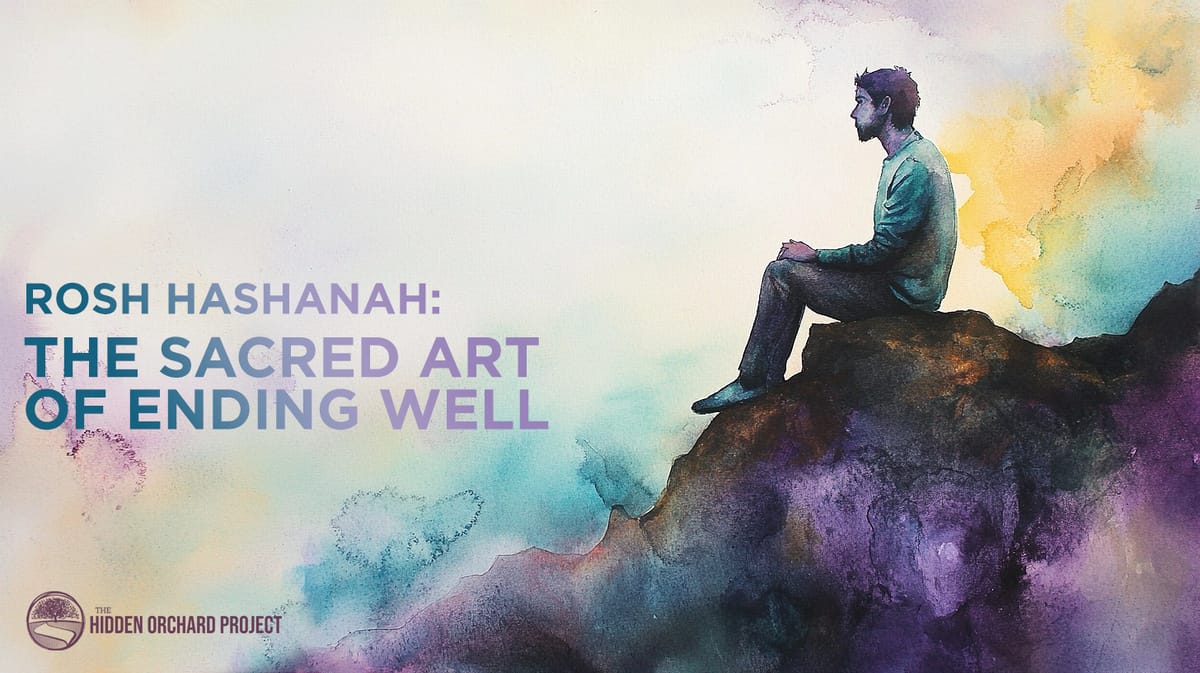
Years ago, while preparing to leave my job for a new venture, a friend on staff gave me advice that has stuck with me to this day. He said, "...make sure you end well."
These simple words continue to echo the importance of closure, ensuring we carefully and tactfully close out one chapter before beginning the next.
This balance is most prominently experienced in the time of Elul as Rav Dovber Pinson writes¹:
"On one hand, we are tasked with finishing the old year, while at the same time, there is a palpable excitement stirring inside us for the new year."
He continues that G_D creates beginnings but we create endings.
But endings can be difficult and moving on can be challenging as we are uncertain as to what is next. Some quickly rebound into the next 'thing' in hopes of avoiding the awkward transition phase².
Alternatively, many people go through life in a state of disconnect - unaware of energy shifts, seasonal changes, or the transitions between beginnings and endings altogether.
Spiritual Baggage
For those new to Rosh Hashanah, the month of Elul [on the Jewish calendar] begins a 40-day period of spiritual transition. Rosh Hashanah is for everyone, and it is our time to end the previous year and prepare for the new year ahead³.
Tradition teaches that everything we will receive and experience in the new year is deeply influenced by our spiritual condition as the year begins.
It follows that if we do not invest in spiritual purification, now, then we choose to begin the new year on an unstable footing.
Put another way, the failure to offload the prior year's baggage causes us to carry this load into the new year, inviting additional trials and hardships into our lives. The world witnessed this last year in Israel.
This is why it has become customary for the wise to invest time in prayer, giving charity, and actively apologizing to those we have hurt. These are effective, but we must be active and intentional in this work.
In a Moment
In my life, I have observed many endings. The most memorable were those where someone ventured out of their comfort zone to seek reconciliation.
One example I recall - a family member who passed a few years ago spent their final days making amends for years of difficult interactions. In a moment, they changed their legacy, and it is those last days for which they are remembered.
In the Talmud⁴, we're told the story of Rabbi Eleazar Dordaya. Before receiving the title "Rabbi," Dordaya was a man who spent his days in sin, chasing physical pleasures. In a moment of awakening, he was given the chance to repent for his actions, and he took it.
So genuine and effective was his repentance that a voice from Heaven declared that he had been successful in his efforts at the moment of his passing. Then we read:
When Rabbi Yehuda HaNasi heard this story of Elazar ben Dordaya, he wept and said: There are some who acquire their share in the World-to-Come only after many years of toil, and there are some who acquires their share in the World-to-Come in one moment
We learn that genuine repentance can go a very long way.
The Challenge - Looking Back
1. Introspection
Spend time identifying the unresolved issues from the past year. Open your calendar and go through the months of the last year, recalling the trips, interactions, and events that you may have forgotten about.
Another way to jog the memory is to go through the photos on your phone, or even your emails and texts to recall the places you've been and the conversations you've had. Scroll through your social media posts and make sure you are in good standing.
2. Make a List
Make a list of the actions, words, and thought patterns that you would like to repair. Take note of what you could have done better and the people you might need to reconcile with.
Be thorough, but don't let these mistakes contribute to a negative outlook on yourself. Simply repent, apologize to the best of your ability, and move on.
3. Begin to Plan the New Year
We will explore this idea in more depth in the next part of this series, so stay tuned, and subscribe today so you don't miss the next post.
In Concluding
The month of Elul gives us the chance to recalibrate, end the year well, and set the best foundation for the year to come.
Given the state of the world, this may be the most important Elul of our generation. In closing, I'll leave you with the words of Rav Pinson again:
When we do appropriate teshuva, returning to the highest truth, we can gently say goodbye to the past. Then we can freely exhale our energies into the open field of the future year.¹
Looking for Inspiration?
Notes:
¹ The Month of Elul. Rav Dovber Pinson
² Change According to the Kabbalah
³ 40 Days of Spiritual Metamorphosis
⁴ Avodah Zara 17

